Castle Pixel, LLC. who made Blossom Tales recently announced Cattle Country, a pixel-art take on Red Dead Redemption meets Stardew Valley. Their last game, Blossom Tales II: The Minotaur Prince, actually did have Native Linux support so perhaps they may do it again for this one. Otherwise, it will likely run well enough with Proton.
Nice to see a bit of a different take on the more casual farming life sim genre. You'll build up your own home, go fishing, farm the lands, work with the locals and of course you'll also be able to go underground and go mining for gold. However, this is not entirely a little cozy game, as it's the Wild West, you'll also have to take on a few bandits.
Check out the trailer:
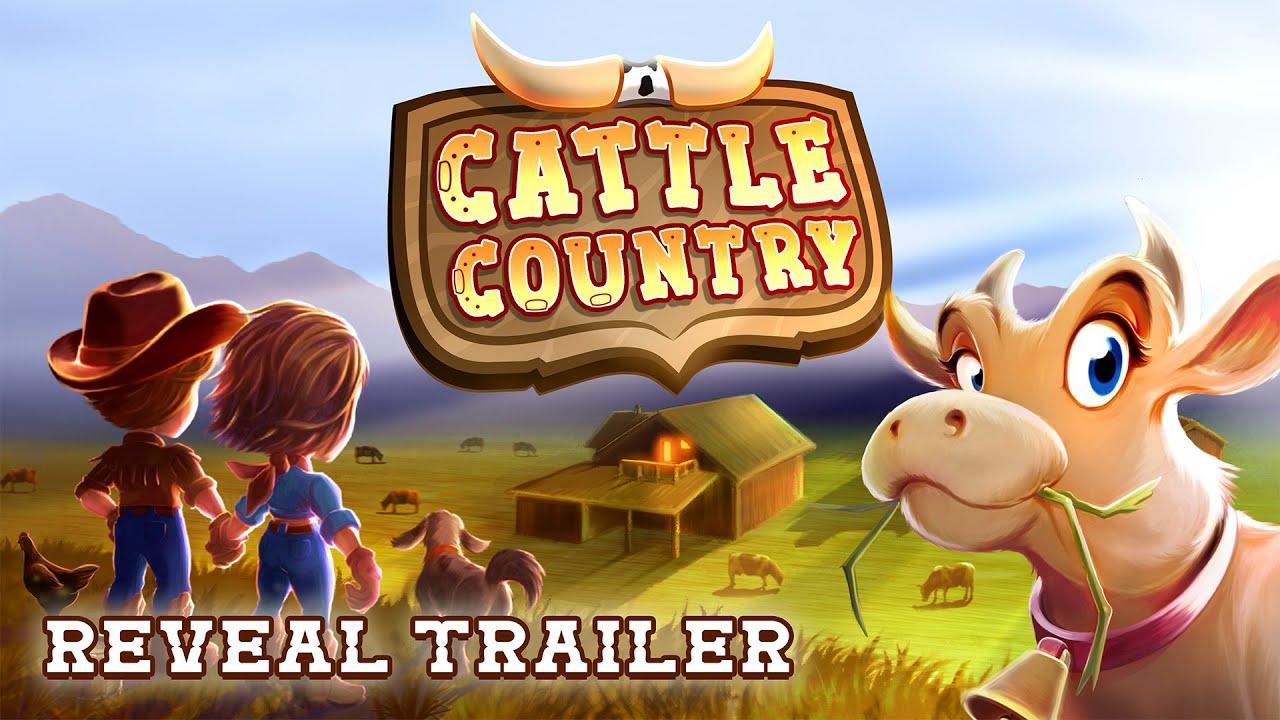
Direct Link
Features:
- Ranchin' and Handcraftin’ - Making your home on the range is a modern departure. From sunup to sundown, you'll be rollin' up your sleeves and gettin' your hands dirty working the land and raising your cattle. Building and crafting as you go to make your own little slice of heaven under the blue skies of Cattle Country.
- Swappin' stories and settlin' in with your neighbours - Get to know the townsfolk, hear their stories, help them out. The people here are a hardy bunch - you’ve got be to survive here. But they have hearts as warm as a hearth in the wintertime if you make the effort to stoke the flames.
- Beware of Bandits - Not everyone in Cattle Country is the warm and fuzzy type, so watch out for nefarious plots and shady characters. Protect your homestead and your community.
- Rodeos to Romance - Making friends is a must in the Wilderness, relying on each other through thick and thin. But maybe you've got a yearnin' for more? With 18 romanceable characters, take a chance and grab love by the reigns.
- Buried Treasure - Did yer hear? There's treasure in the mines, for those who are brave enough to look for it. From precious metals and minerals to bandit stashes. Grab your pickaxe and venture out into the thrill of prospecting.
- Trackin' game in the wild - From bunnies to bovine, there's many a critter waiting in the woodlands for a keen adventurer. Hunting to eat or venturing out just to see all of nature’s wonders, it’s your call.
You can give it a follow on Steam.
The intro makes me think--is it something specific to American as opposed to other sorts of frontiersman that they seem to spend half their time yacking about how awesome they are?
Now that you mention it , I know very little of any other frontiersmen.
A lot of movies , books , games etc focus on the US expansion west.
And to be fair to the yanks , working in the scorching sun , drinking whisky because the water is polluted and subsisting on a diet of beans and biscuits while building towns and a life for yourself is no mean feat.
This was made because ??? Stardew Valley made a lot of money ???
Which to me makes it feel like it's a: "The Product".
I won't know if it has a soul or not until the reviews start to roll in.
It's graphically "adequate", but as the Nausicaan's say: "you talk and you talk, but you have no guramba!"
We will see if it has guramba or not.
The intro makes me think--is it something specific to American as opposed to other sorts of frontiersman that they seem to spend half their time yacking about how awesome they are?I'm curious, were you talking about the trailer? I rewatched it out of curiosity wondering if I'd missed something (since I didn't remember anything like that from watching it yesterday), and the only thing I could see that might be seen as boasting was the line "People here are a hardy bunch – have to be, to survive here," which, for real frontier communities, was less a boast than a simple statement of fact. But maybe being American (and growing up on a small farm) I don't have the right perspective to see what you're describing.
. . . The whole thing? We're welcoming (if you're worth it), our souls are clean (presumably unlike you city slickers), we have more community, we apparently invented hard work, it just goes on and on. The whole trailer sounds to me like an extended summation of the American wonderful-frontiersman mythology, the kind of stuff Texan and Albertan oil men never shut up about.The intro makes me think--is it something specific to American as opposed to other sorts of frontiersman that they seem to spend half their time yacking about how awesome they are?I'm curious, were you talking about the trailer? I rewatched it out of curiosity wondering if I'd missed something (since I didn't remember anything like that from watching it yesterday), and the only thing I could see that might be seen as boasting was the line "People here are a hardy bunch – have to be, to survive here," which, for real frontier communities, was less a boast than a simple statement of fact. But maybe being American (and growing up on a small farm) I don't have the right perspective to see what you're describing.
As to the "hardy bunch" thing . . . poor people moved to the frontier because it was easier than city life. Fewer amenities, but much more food and shelter and less sweatshop labour. Frontier life involved hard work . . . but not a 12 hour day, 6 days a week PLUS whatever you had to do at home. And the frontier was dangerous . . . but factories had no safety standards and disease spread like crazy in the cities. So, sure, hardy, but only hardier than hardscrabble city people because they got to eat enough food to support hardiness . . .
Last edited by Purple Library Guy on 2 Jul 2024 at 7:40 pm UTC
Stardew Valley was made because Harvest Moon SNES never got a proper successor for decades by a super fan turned dev tycoon.I'm with you on that, it's a Stardew-clone, but maybe some people are excited about a Western-themed take on that game.
This was made because ??? Stardew Valley made a lot of money ???
Which to me makes it feel like it's a: "The Product".
I won't know if it has a soul or not until the reviews start to roll in.
It's graphically "adequate", but as the Nausicaan's say: "you talk and you talk, but you have no guramba!"
We will see if it has guramba or not.
My wife has played at least three Stardew clones and they're mostly quite similar with few notable improvements. SDC creator really nailed it right out of the gate, it's hard to improve on what he built.
. . . The whole thing? We're welcoming (if you're worth it), our souls are clean (presumably unlike you city slickers), we have more community, we apparently invented hard work, it just goes on and on. The whole trailer sounds to me like an extended summation of the American wonderful-frontiersman mythology, the kind of stuff Texan and Albertan oil men never shut up about.Interesting, thanks. I definitely got a completely different feel from it, probably due to one side of my family being frontier farmers and having done quite a bit of farm work growing up.
As to the "hardy bunch" thing . . . poor people moved to the frontier because it was easier than city life. Fewer amenities, but much more food and shelter and less sweatshop labour. Frontier life involved hard work . . . but not a 12 hour day, 6 days a week PLUS whatever you had to do at home. And the frontier was dangerous . . . but factories had no safety standards and disease spread like crazy in the cities. So, sure, hardy, but only hardier than hardscrabble city people because they got to eat enough food to support hardiness . . .I do have a few quibbles with this, though:
- While some people did move from city to country (some of my ancestors came over from Europe as bakers and become frontier farmers in Nebraska!), the overwhelming migration patterns throughout history have been from country to city (stretching back through pre-history to when there was first a distinction between the two). Cities were mostly population-negative prior to modern medical care and antibiotics (due to the diseases you mentioned), while family farms naturally grow over time to outstrip what the land can support, with people heading into cities hoping to make their fortune (and, much more likely, becoming the kind of laborer that ended up in factories).
- Outdoor farm work is typically done "sun-up to sun-down", which can be a lot longer than 12 hours during the summer. (Possibly shorter during the winter; to be fair, I've never lived where it snowed in winter so I don't have first-hand experience, but from what I've read the winter was spent doing indoor work in preparation for spring.) The vital importance of every single family member pitching in around the farm during summer is why public schools are off during those months; if they weren't, kids from rural populations (~80% of the population in 1800, and it's only in 2007 that the world's urban and rural populations balanced) just wouldn't come because their labor was needed to ensure their families didn't starve over the winter.
- Unlike factory workers, farmer don't get to clock off; if the animals escape in the night after a full day's work, well, better go round 'em up, because who else is going to do it?* If a storm's threatening the harvest, you do whatever it takes to get it in because the alternative is likely starvation over the winter (or at least, higher risk of dying to illness from a weakened immune system due to malnutrition). Factory workers at least got government-mandated holidays; farm animals don't care what the government says, they still need to be fed and milked same as every other day.
- Frontier farms also had no safety standards, and serious accidents were certainly far from uncommon (as accounts from frontier people recount, and even today agriculture ranks up there pretty highly in terms of most dangerous industries for both injuries and deaths).
- Disease kills as quickly in the country as in the city, and diseases like dysentery can come from the environment rather than other people…plus, the nearest medical help might be a day or two away rather than a few streets over. Though certainly disease was (and remains) easier to spread in cities.
I'm not disagreeing that the kind of laborers you've described had it rough – life was pretty hard back then for everyone compared to today – but the period of time during which such long hours were permitted is a relatively small portion of time in the grand scheme of history, and things got better with labor regulations over time; farmers were working sun-up to sun-down long before the first factory was a twinkle in a capitalist's eye, and even today if you're a self-employed farmer nobody's paying you overtime if Mother Nature's threatening the harvest with a storm.
Whether or not frontier life was physically harder than that of a blue collar city laborer**, it certainly had its own privations: isolation, food insecurity, and the constant threat of any one of numerous dangers hanging overhead like the sword of Damocles which could spell disaster.
*Speaking from personal experience, at least the part about the pigs escaping (AGAIN
**And not every city worker is working a physical job; lots of skilled labor positions exist in cities that don't on the frontier.
Well, it's certainly a fact that during the industrial revolution it took a lot of dispossession and legal interventions to push people who had previously been farmers into the factories in the first place--and that's poor peasants with small holdings and heavy rent. Those people definitely thought farming was better and wished they could keep it. And I think it's actually fairly well established that in North America, the existence of the frontier actually constrained employers' ability to turn the screws on their employees--conditions were for some time better in the United States and Canada than in say England or other parts of Europe, because if they dropped past a certain point employees had the option of heading West. And many people did exercise that option, or there still wouldn't be anyone of European descent living in the Western United States or Western Canada, so there must have been some attraction to it.. . . The whole thing? We're welcoming (if you're worth it), our souls are clean (presumably unlike you city slickers), we have more community, we apparently invented hard work, it just goes on and on. The whole trailer sounds to me like an extended summation of the American wonderful-frontiersman mythology, the kind of stuff Texan and Albertan oil men never shut up about.Interesting, thanks. I definitely got a completely different feel from it, probably due to one side of my family being frontier farmers and having done quite a bit of farm work growing up.
As to the "hardy bunch" thing . . . poor people moved to the frontier because it was easier than city life. Fewer amenities, but much more food and shelter and less sweatshop labour. Frontier life involved hard work . . . but not a 12 hour day, 6 days a week PLUS whatever you had to do at home. And the frontier was dangerous . . . but factories had no safety standards and disease spread like crazy in the cities. So, sure, hardy, but only hardier than hardscrabble city people because they got to eat enough food to support hardiness . . .I do have a few quibbles with this, though:
- While some people did move from city to country (some of my ancestors came over from Europe as bakers and become frontier farmers in Nebraska!), the overwhelming migration patterns throughout history have been from country to city (stretching back through pre-history to when there was first a distinction between the two). Cities were mostly population-negative prior to modern medical care and antibiotics (due to the diseases you mentioned), while family farms naturally grow over time to outstrip what the land can support, with people heading into cities hoping to make their fortune (and, much more likely, becoming the kind of laborer that ended up in factories).
- Outdoor farm work is typically done "sun-up to sun-down", which can be a lot longer than 12 hours during the summer. (Possibly shorter during the winter; to be fair, I've never lived where it snowed in winter so I don't have first-hand experience, but from what I've read the winter was spent doing indoor work in preparation for spring.) The vital importance of every single family member pitching in around the farm during summer is why public schools are off during those months; if they weren't, kids from rural populations (~80% of the population in 1800, and it's only in 2007 that the world's urban and rural populations balanced) just wouldn't come because their labor was needed to ensure their families didn't starve over the winter.
- Unlike factory workers, farmer don't get to clock off; if the animals escape in the night after a full day's work, well, better go round 'em up, because who else is going to do it?* If a storm's threatening the harvest, you do whatever it takes to get it in because the alternative is likely starvation over the winter (or at least, higher risk of dying to illness from a weakened immune system due to malnutrition). Factory workers at least got government-mandated holidays; farm animals don't care what the government says, they still need to be fed and milked same as every other day.
- Frontier farms also had no safety standards, and serious accidents were certainly far from uncommon (as accounts from frontier people recount, and even today agriculture ranks up there pretty highly in terms of most dangerous industries for both injuries and deaths).
- Disease kills as quickly in the country as in the city, and diseases like dysentery can come from the environment rather than other people…plus, the nearest medical help might be a day or two away rather than a few streets over. Though certainly disease was (and remains) easier to spread in cities.
I'm not disagreeing that the kind of laborers you've described had it rough – life was pretty hard back then for everyone compared to today – but the period of time during which such long hours were permitted is a relatively small portion of time in the grand scheme of history, and things got better with labor regulations over time; farmers were working sun-up to sun-down long before the first factory was a twinkle in a capitalist's eye, and even today if you're a self-employed farmer nobody's paying you overtime if Mother Nature's threatening the harvest with a storm.
Whether or not frontier life was physically harder than that of a blue collar city laborer**, it certainly had its own privations: isolation, food insecurity, and the constant threat of any one of numerous dangers hanging overhead like the sword of Damocles which could spell disaster.
*Speaking from personal experience, at least the part about the pigs escaping (AGAIN) on a rainy winter night. To be fair I don't remember if it was after a full day of work or not.
**And not every city worker is working a physical job; lots of skilled labor positions exist in cities that don't on the frontier.
But ultimately, what I was wondering about wasn't so much whether any of the spiel was true. A fair amount no doubt is, although many other areas of life could have similar things to say. The question is whether, say, New Zealand settlers traditionally had this thing where they talked about how wonderful they were. Or, have this thing now where they imagine their old-timey selves talking about how wonderful they were.
So for instance, I think there's definitely a cultural distinction in Canada even between how British Columbians talk about the frontier, frontier life and so on, and how Albertans talk about it (which is much more typically American in register, sort of deliberately so). That might really be more of a distinction between a province dominated by forest and fishing (although there was surprisingly always ranching in BC) and one dominated by prairie, ranching and farming than a cultural difference, or maybe that's what caused the cultural difference. Whatever the reason, it's definitely there--you don't get rich British Columbian executives and public figures who have never been on a farm wearing cowboy hats. Newfoundland has traditionally had this tough, hard-bitten fisherfolk culture with many features of the life somewhat similar to the prairie frontier, but they don't as far as I know have a big narrative thing to go with it. Rather, they tend to be known for their sense of humour, often self-deprecating.
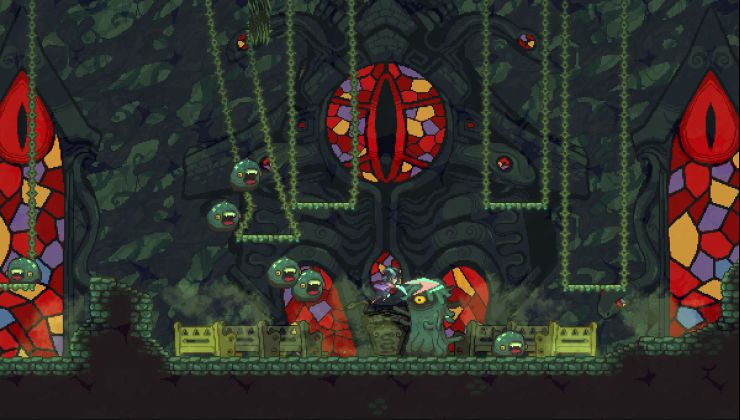
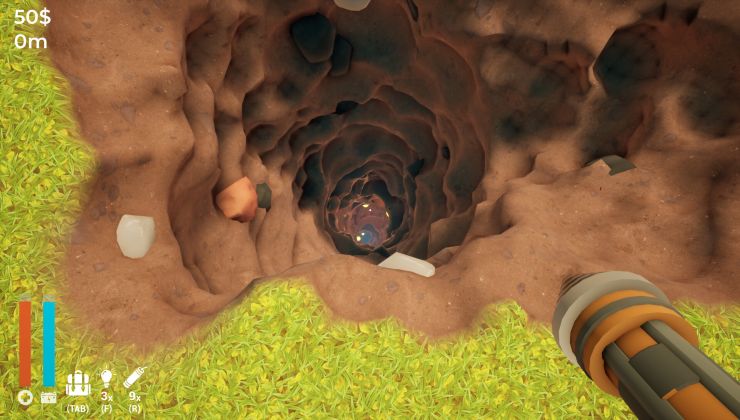
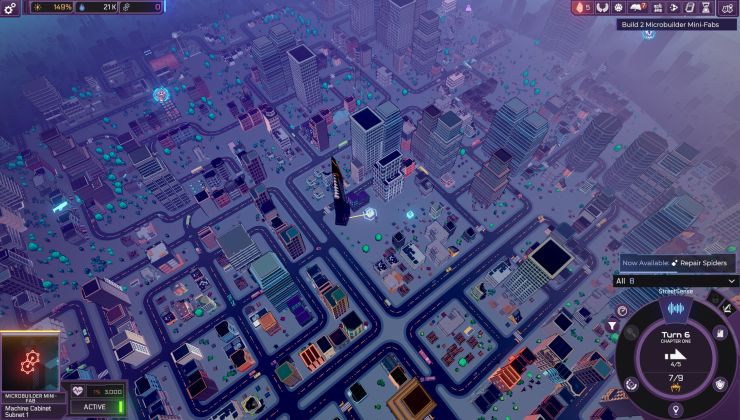
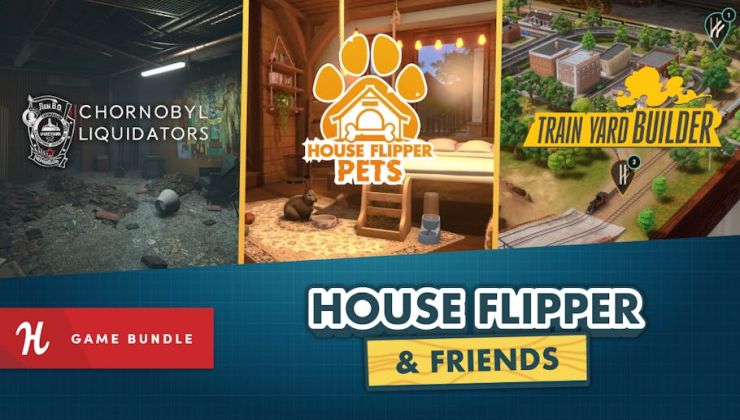




 How to set, change and reset your SteamOS / Steam Deck desktop sudo password
How to set, change and reset your SteamOS / Steam Deck desktop sudo password How to set up Decky Loader on Steam Deck / SteamOS for easy plugins
How to set up Decky Loader on Steam Deck / SteamOS for easy plugins
See more from me